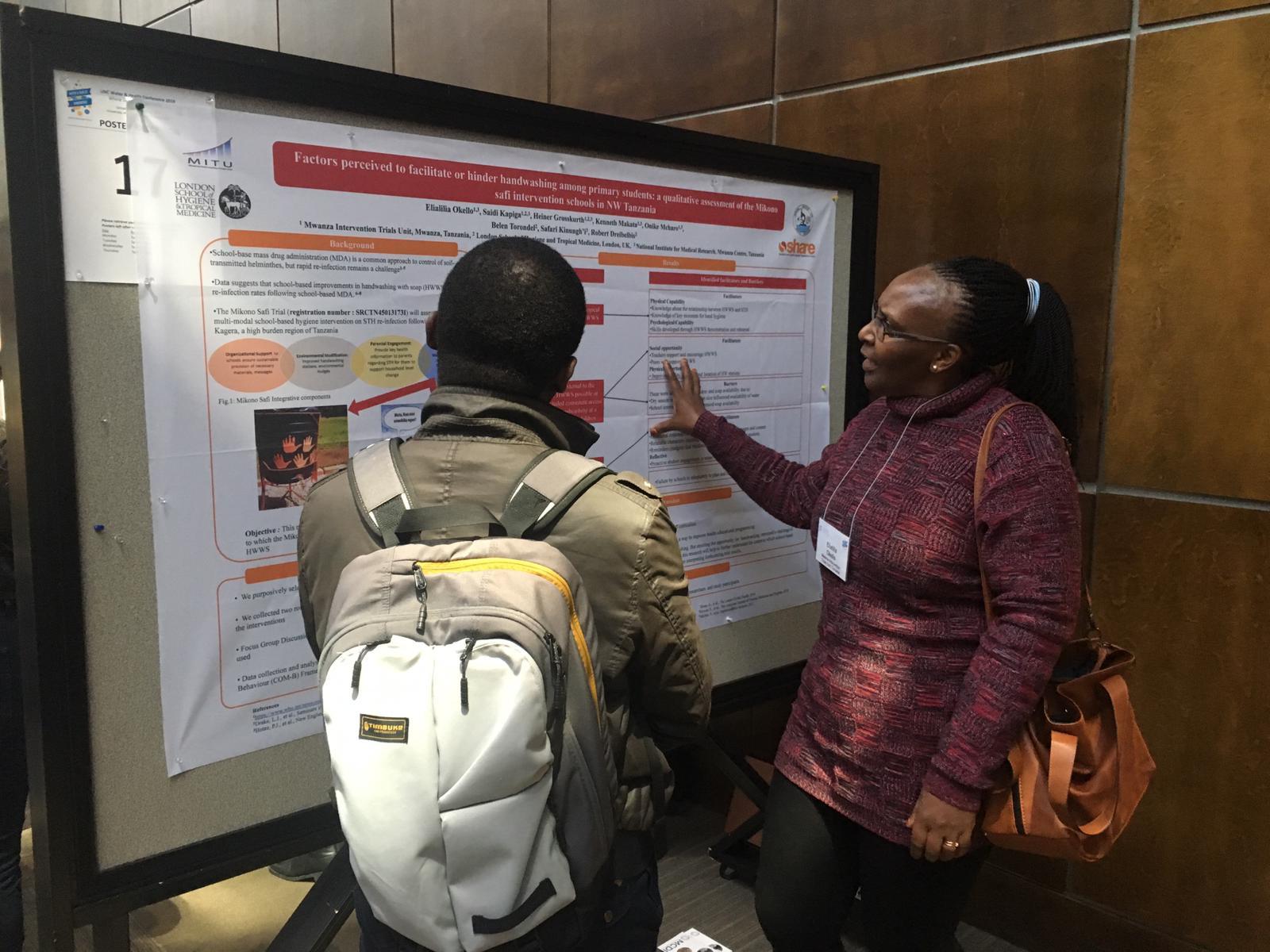Conference reflections from SHARE Research Fellows: Elialilia Okello

Our SHARE Research Fellows had a busy year in 2019 attending conferences. Two key conferences were UNC Water and Health and the American Society of Tropical Medicine and Hygiene (ASTMH) Annual Meeting. In this series of blogs, the Research Fellows share their experiences of the conferences. Elialilia Okello, SHARE Research Fellow from Tanzania, attended UNC and inputted towards work presented at the ASTMH Annual Meeting. Here she reflects on the proceedings at UNC.
With support from DFiD through the SHARE consortium, I have been able to attend and participate in two UNC Water and Health Conferences in North Carolina. The UNC Water and Health conference has a well blended mixture of events, which include creative plenary sessions, side events and well planned poster and verbal presentations. The conference brings together academics, programme implementers, funding agencies and some policy makers; a combination that speaks well to the title of the conference “Water & Health Conference: Where Science Meets Policy.”
October 2019 was the second time I participated in the conference. My first attendance was in October/November 2018 where I made a verbal presentation titled “Engaging parents to support hand hygiene for reduction of helminth infection: practical experience from an on-going trial in North West Tanzania”. In October 2019 I made a poster presentation titled “Factors perceived to facilitate or hinder handwashing among primary students: a qualitative assessment of the Mikono Safi intervention in schools in NW Tanzania”. On both occasions, I was presenting results from a qualitative evaluation of the Mikono Safi trial. Mikono Safi (Kiswahili phrase for clean hands), is a randomised controlled trial whose major goal was to assess the effectiveness of promoting hand washing with soap (HWWS) among school children to reduce the prevalence and intensity of Ascaris lumbricoides and Trichuris trichiura infections – two types of intestinal worm infections.
The 2019 conference had a wide range of insightful and mind-provoking sessions and presentations including SHARE’s own exemplary work from the “Banja la Ukhondo” (Hygienic Family) trial in Malawi, the Safe Start trial in Kenya and the San-Dem trial with its famous Indaba Yama’ Landlords (Landlords’ secret meeting) concept in Zambia.
There were also some very creative plenary sessions spread throughout the conference week. The two highlights of the plenary sessions were: a session on the first day of the conference that was titled “You Can’t Handle the Truth”, which focused on the insufficiency of evidence in the WASH sector. The second session was on the Tuesday and was titled: “Breaking Up is Hard to Do – Planning an Exit Strategy”, which was on the importance of an exit strategy in programmes and collaborations. These two plenary sessions addressed pertinent issues in a provocative and theatrical way that was educational but also entertaining.
My one most important highlight from UNC was the menstrual hygiene management advocacy and research work presented during the conference. Although menstruation featured a lot less at the 2019 conference compared to 2018, there were two important sessions that I enjoyed. Firstly, the advocacy work from the International Water and Sanitation Centre in Uganda, which focused on providing insights, lessons, challenges and achievements of Uganda’s national advocacy campaign on menstrual hygiene management. The second session on menstruation was the side event convened jointly by the Johns Hopkins Bloomberg School of Public Health, the University of Sydney, Duke University and UNICEF on measurement development for menstruation health. The presentations highlighted the lack validated and reliable tools for menstrual health research, which creates major challenges in conducting comprehensive and comparable assessment across settings. They discussed recent tool development efforts that they were involved in and shared a range of new tools. This for me was an exciting development!
Opportunities for networking among the conference participants were also well provided for during tea and lunch breaks.
